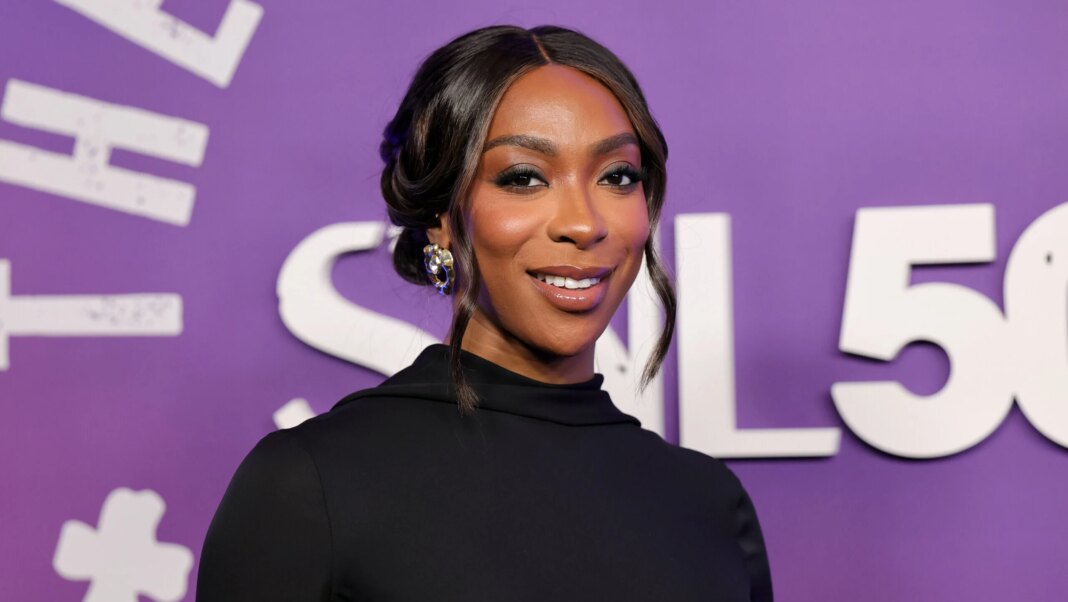Cast Changes at “Saturday Night Live”: A Notable Absence of Black Women
The recent cast turnover at NBC’s iconic sketch comedy show, “Saturday Night Live” (SNL), has sparked significant discussions throughout the comedy community, particularly due to the absence of Black women in its cast. This shift was highlighted by The 19th, emphasizing the show’s departure from its previous representation just as the new season approaches.
Ego Nwodim’s Departure
On Friday, September 12, Ego Nwodim announced her exit from the show after a notable seven-season run. In her heartfelt Instagram post, she remarked, “The hardest part of a great party is knowing when to say goodnight.” This sentiment resonated with many fans who have followed her journey since she joined SNL in 2018.
Nwodim expressed deep gratitude toward show creator Lorne Michaels, her castmates, writers, and crew, reflecting on how her time on stage has shaped her both personally and professionally. She requested, humorously yet earnestly, to be invited to people’s weddings, emphasizing her willingness to stay connected even after her departure.
A Legacy of Representation
During her time on SNL, Nwodim became renowned for memorable sketches, such as “Lisa from Temecula” and her recurring “Miss Eggy” character. She also made headlines for a recent “Weekend Update” moment that caused a live audience uproar, showcasing her ability to push comedic boundaries.
Nwodim’s tenure made her the eighth Black woman to be added to the show’s cast in its 50-year history, joining the ranks of notable names like Maya Rudolph, Sasheer Zamata, and Leslie Jones. Each of these women has significantly impacted the landscape of comedy, highlighting the importance of diverse voices in mainstream media.
Devon Walker’s Exit
Adding to the shake-up, fellow cast member Devon Walker also left SNL following Season 50. Joining the show as a featured player in 2022, Walker was promoted to repertory status in 2024. His time at SNL, however, was not without its challenges; he described the experience as “sometimes … toxic as hell,” reflecting a sentiment shared by others who have left the show.
In a poignant farewell, Walker likened his job to a marriage, noting that while some relationships last, many inevitably end. His candid remarks opened a dialogue about the pressures and culture within high-profile television environments, especially for performers of color.
Reactions from the Comedy Community
The mass exodus of Black cast members has not gone unnoticed. Punkie Johnson, a former SNL cast member, expressed her astonishment at the sudden turnover, exclaiming, “Wtf is happening… This is like the departed.” Her observation encapsulated the sense of shock across the industry regarding the drastic changes in the cast lineup.
Comedian Wanda Sykes also weighed in during an appearance on Sherri Shepherd’s show, humorously speculating about the implications for Kenan Thompson, who has been part of SNL since 2003. Sykes joked, “Boy, Kenan’s gonna be in a lot of wigs, huh?” Her comment highlighted the likelihood of increased pressure on Thompson to fill the creative void left by departing castmates.
The Cultural Impact of Representation
This shift at SNL raises broader conversations about representation within comedy and entertainment. With the notable absence of Black women in the current cast, questions arise regarding the show’s commitment to diversity and the voices it elevates. Each cast member not only contributes to the show’s humor but also shapes its cultural relevance, affecting how audiences engage with comedy.
In the wake of these changes, the comedy world waits to see how SNL will adapt and whether it will prioritize inclusivity in future casting decisions. The legacies of performers like Nwodim and Walker underscore the significant role diversity plays in creating relatable and impactful comedic narratives.



